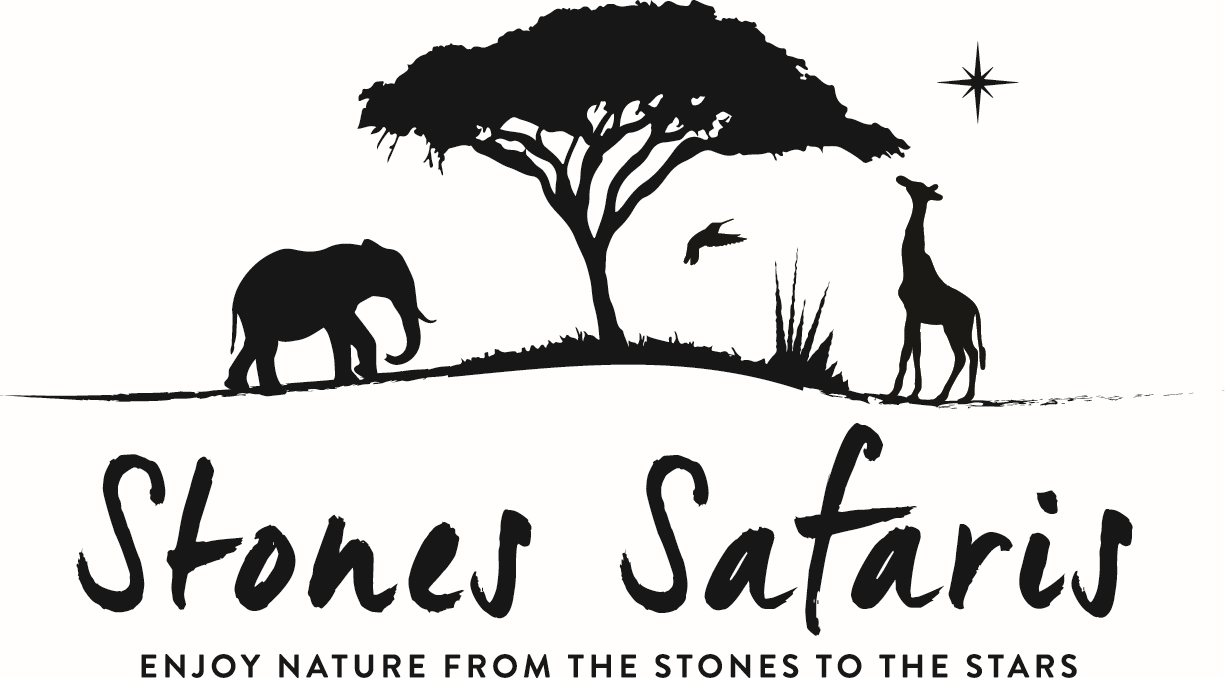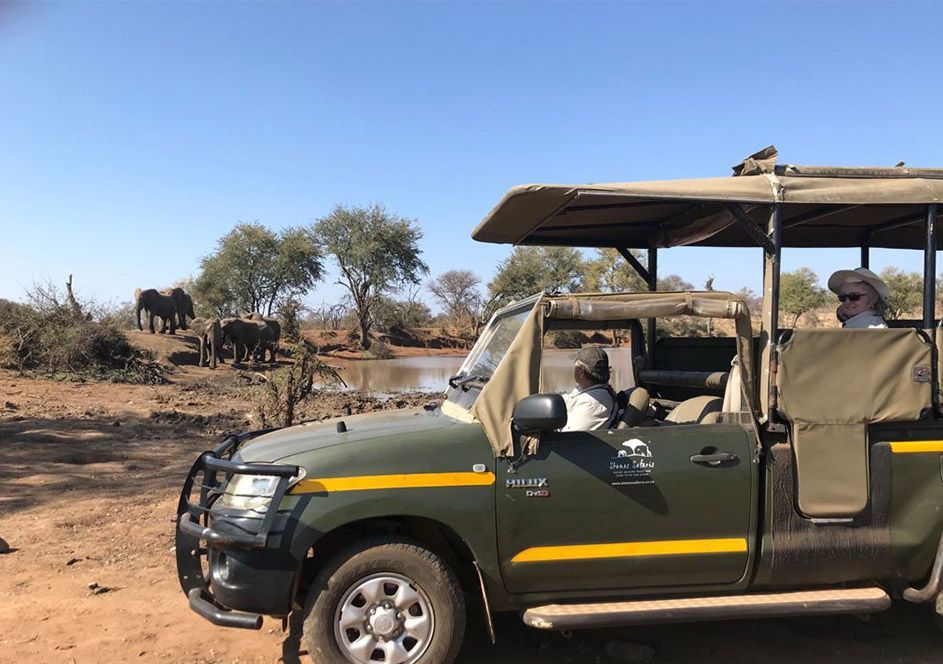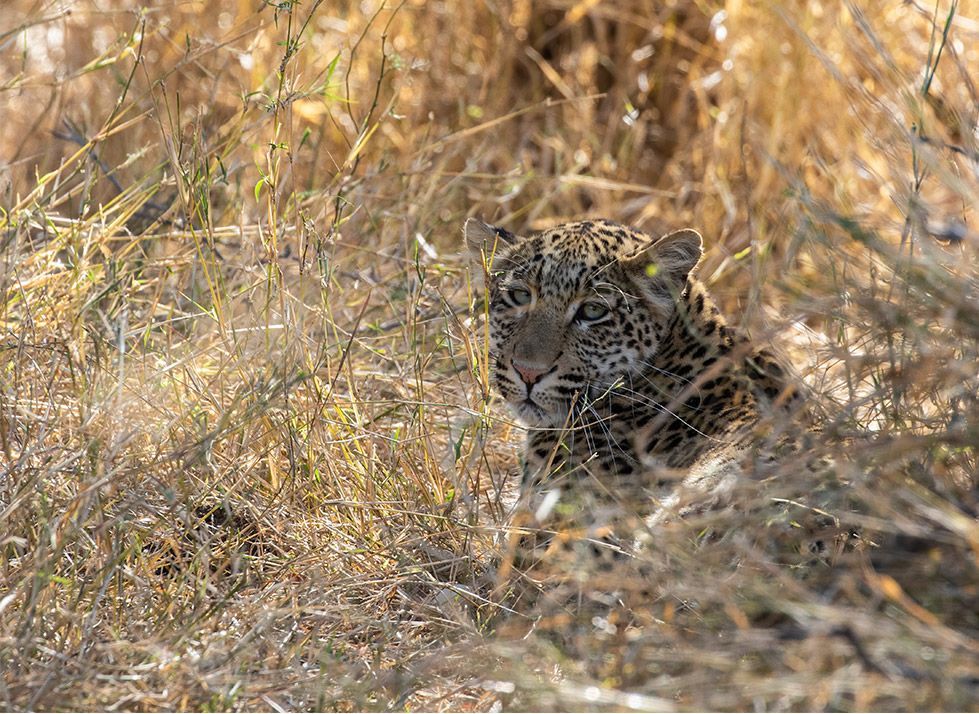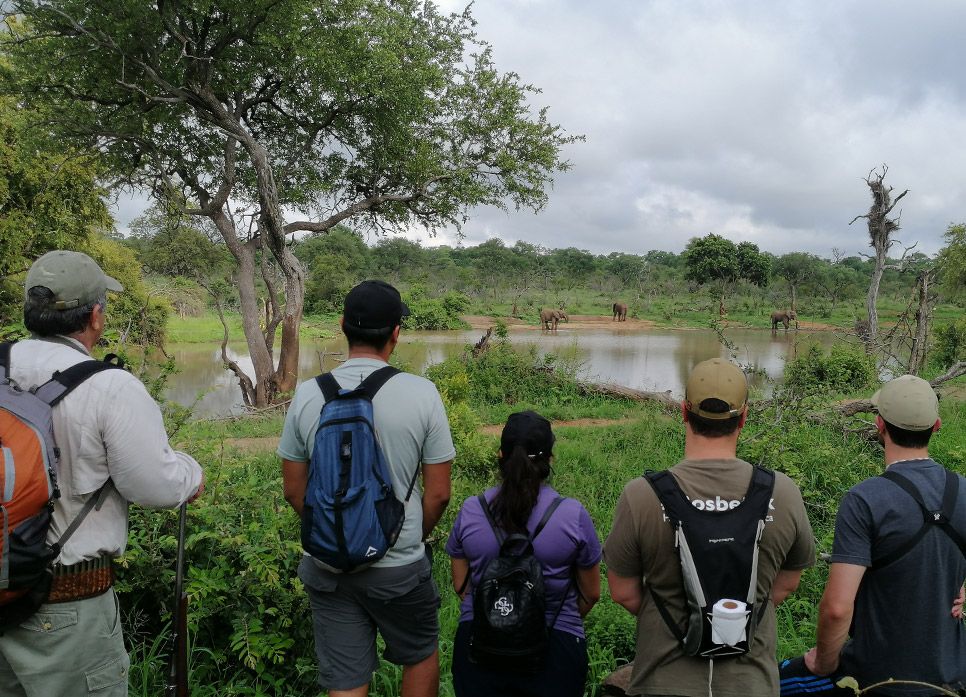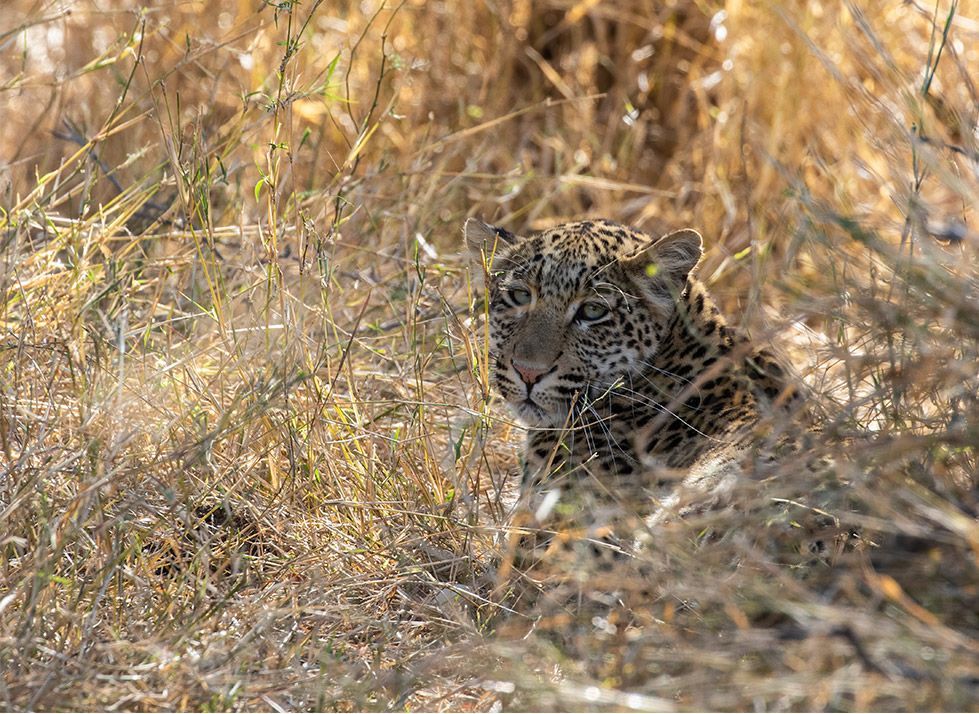What to Expect on a Walking Safari in Kruger National Park

From the Stones to the Stars
There’s a moment when you step out of the vehicle and into the wild that everything changes. The scent of sun-baked grass fills your lungs. The low hush of the savannah settles around you. Suddenly, you’re not just observing nature—you’re part of it. That’s the heartbeat of a walking safari in Kruger National Park.
As someone who’s spent more nights than we can count under African stars, let us tell you: there’s nothing quite like meeting Africa on foot. It’s a raw, visceral way to experience the bush—no engine hum, no filter. Just you, your guide, and the primal rhythm of the wilderness.
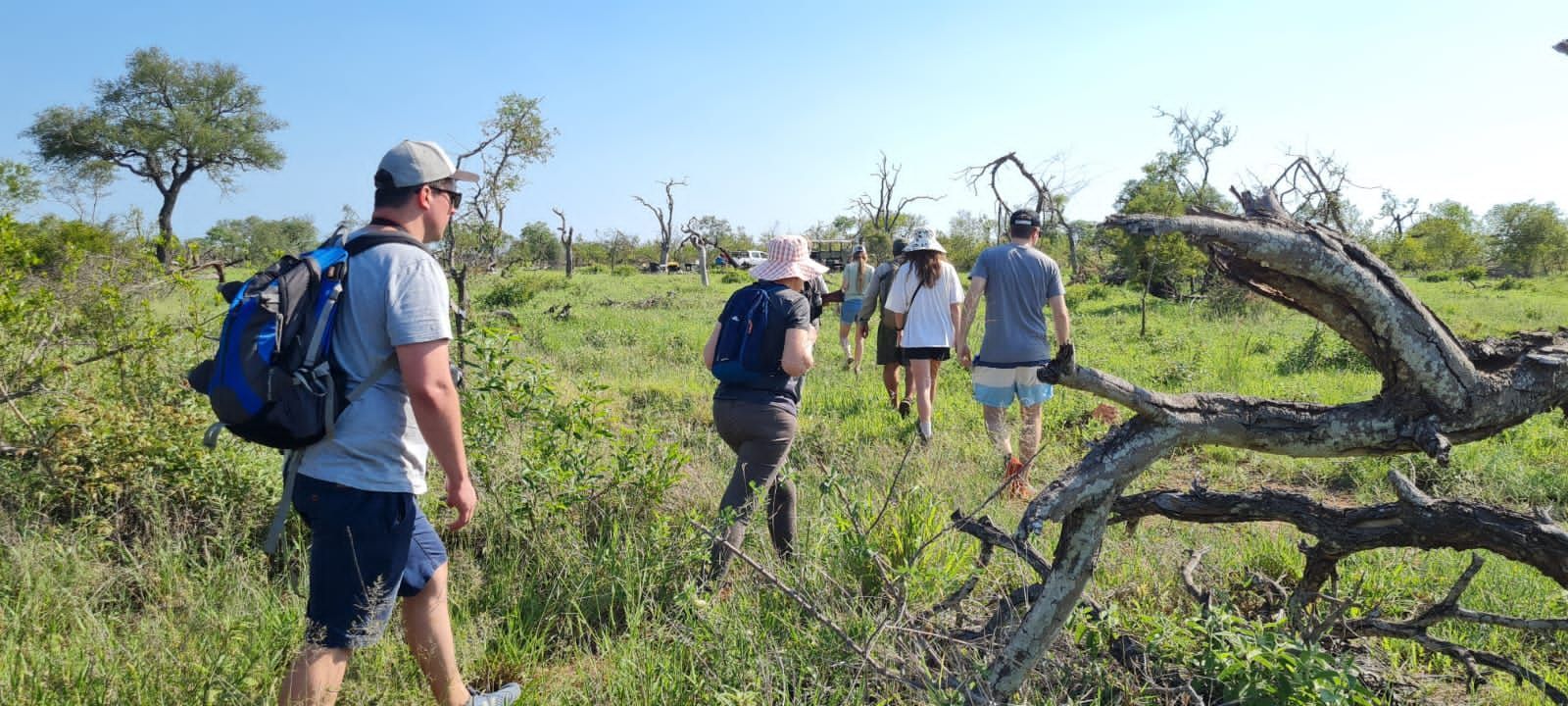
Key Takeaways
- A Walking Safari Offers a Deeper Connection to Nature
- It’s About Learning, Not Just Spotting Wildlife
- Safety is Paramount, and Guides Are Highly Trained
- Come Prepared, But Travel Light
- Stones Safaris Offers One of the Best Bush Walks in Kruger
The Spirit of Walking Safaris
Walking safaris aren’t about ticking animals off a checklist. They’re about reconnecting—with the land, with your senses, with silence. A safari vehicle can show you grandeur, but on foot, you notice the secrets: the fresh scent of elephant dung, the faded scrape of a leopard's claw on a marula tree, the sudden silence that tells you a predator is nearby.
In Kruger, the landscapes shift from mopane thickets to open plains and dry riverbeds, each telling its own story. This isn’t just a trail; it’s a narrative unfolding with every step.
What Really Happens on a Walking Safari
Let’s bust the mystery: here’s what your days might look like.
1. Morning Wake-Up Call
Your guide gently taps on your tent. It’s still dark, and the stars are bright. A hot mug of rooibos tea warms your hands. You’re not groggy—you’re buzzing. Today you walk.
2. The Briefing
Before you go anywhere, your guides—usually two, one armed—brief you. Think of it as the bush version of a flight safety video. You'll cover how to walk, how to stop, what to do if you meet a lion, and what not to do.
3. Into the Wild
You walk at a gentle pace, always scanning, always listening. Every track is a clue. A spattering of impala prints tells a story of grazing at dawn. A snapped branch whispers of elephants. Your guide stops often, kneeling to read the ground like a book.
Sometimes you follow the spoor of a rhino. Sometimes you sit in silence as buffalo graze nearby, your heart thudding in your ears.
This is not adrenaline tourism—it’s something deeper.
It's humility. It’s awe.
4. Back to Camp
By late morning you’re back at camp. Feet dusty, mind buzzing. Over breakfast, you trade stories and scribble notes in a well-worn field journal.
What You’ll Learn Along the Way
A walking safari is a masterclass in nature literacy. Guides are fountains of knowledge.
They’ll teach you how to:
- Identify birds by call
- Read fresh tracks (spoor)
- Understand alarm calls
- Know which tree bark treats a headache
It’s not just learning, it’s remembering—remembering how to be part of a world we once understood intuitively.
How Safe Is It?
Safer than most people think. You’re in the hands of professionals—many trained through FGASA or similarly rigorous programs. They know animal behavior, terrain, and how to manage risk. The guides at Stones Safaris are among the best I’ve walked with: calm, alert, deeply connected to the bush.
The golden rule? Respect. Respect the animals, the land, the silence.
What to Pack (and What to Leave Behind)
- Neutral-colored clothing (khaki, olive, brown)
- Worn-in hiking boots
- A wide-brimmed hat
- Binoculars
- A small daypack for water and snacks
Leave the flashy stuff behind. This is about blending in, not standing out.
Where to Start
There’s no shortage of walking safari options in South Africa, but Kruger is still the gold standard. And if you’re going to do it right, Stones Safaris offers guided walks that hit the sweet spot: expertly led, deeply immersive, and rooted in real conservation ethos.
Their walking safaris in Kruger are intimate, slow-paced, and unforgettable.
Final Thoughts
A walking safari strips the safari experience down to its essence. No frills, no fences, just you and Africa, eye to eye. It reminds you that we are not separate from nature—we are part of it. And in that moment, dusty boots and all, you understand something ancient and beautiful.
If you’re ready to feel the pulse of the wild under your feet, take that first step with Stones Safaris.
The bush is calling. Walk with it.
Frequently Asked Questions
Is a walking safari safe?
Yes, walking safaris are led by highly trained, armed guides who understand animal behavior and risk management. You’re always briefed on safety protocols, and guides maintain full control of the situation.
How fit do I need to be for a walking safari?
You don’t need to be an athlete. Most walks are at a slow, steady pace and last 3–4 hours. A moderate level of fitness and good mobility is enough to enjoy the experience.
Will I still see big animals on foot?
Possibly—but the focus of a walking safari isn’t guaranteed sightings. Instead, it’s about discovering the details: tracks, smells, sounds, and signs. Sometimes, you’ll encounter large animals safely from a distance, which is an unforgettable experience.
What should I wear on a walking safari?
Stick to neutral colors like khaki, green, and brown. Avoid bright or white clothing. Wear comfortable, worn-in hiking boots, and bring a wide-brimmed hat, sunscreen, and a small backpack for water and snacks.
Can I bring children on a walking safari?
Most walking safaris have a minimum age limit, usually 14 or 16 years old, due to safety reasons. Always check with your operator before booking if you're traveling with children.
Book Your Kruger Walking Safari Today
If you're ready to experience Africa with your feet on the ground and your senses wide open, a walking safari in Kruger National Park is the place to start. Stones Safaris offers expertly guided bush walks that bring you closer to the wild than you ever thought possible. Learn more about their unique approach to tracking wildlife on foot and book your safari today.
Contact Stones Safaris:
Email: stonessafaris@gmail.com
WhatsApp/Phone: +27 (0)81 286 9653
or
+27 (0)72 257 2525
